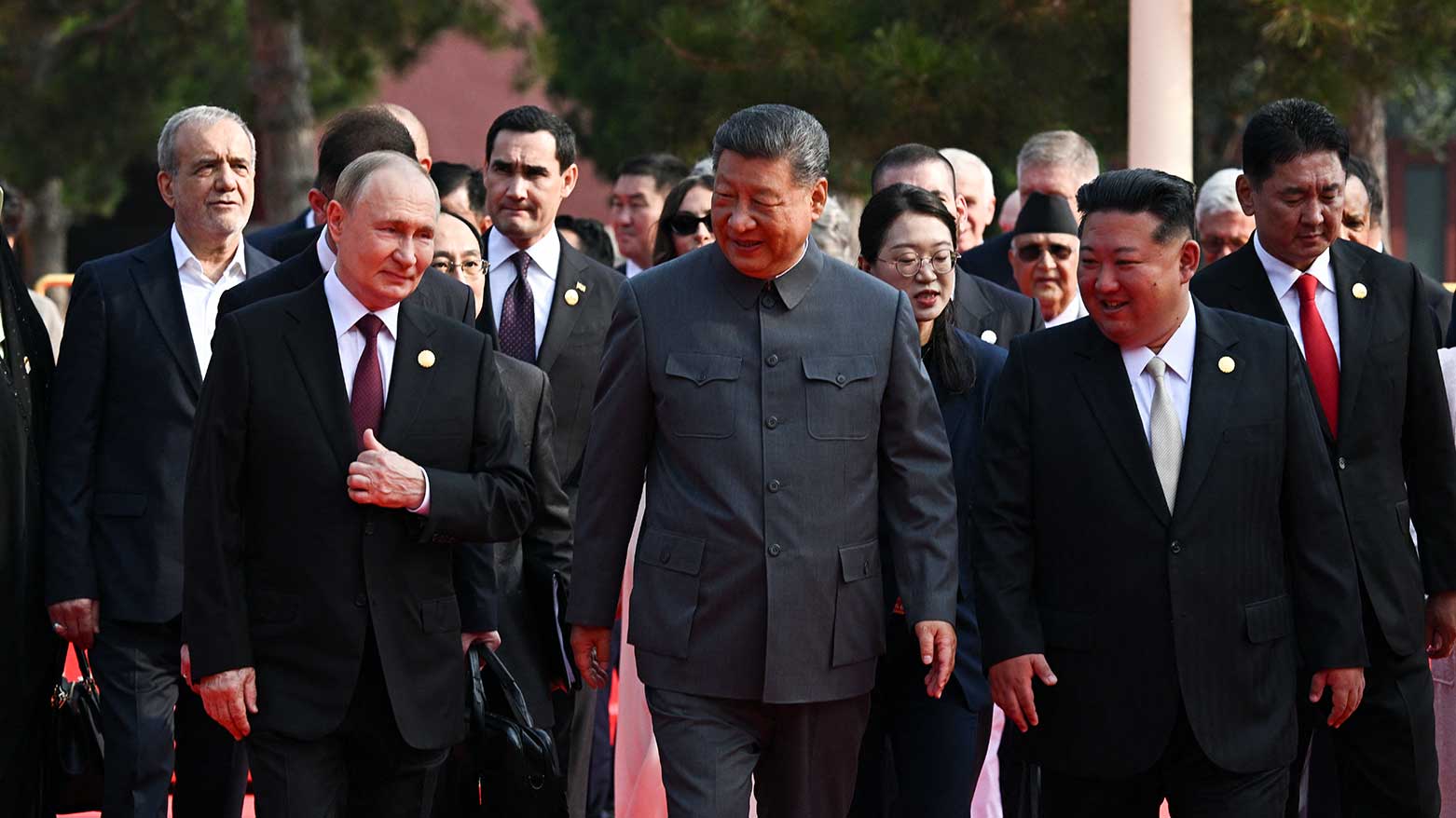China Monitors Australian, Canadian Warships in Taiwan Strait, Calls Transit “Provocative”
China's parade, the first in 15 years, displayed missiles capable of striking Taiwan and intercontinental ballistic missiles (ICBMs) like the Dongfeng DF-31, which could reach across the Pacific Ocean.

ERBIL (Kurdistan24) — China said on Saturday that its military monitored the passage of Australian and Canadian warships through the Taiwan Strait, criticizing their presence in the sensitive waterway as “causing trouble,” according to AFP.
Beijing regards Taiwan as part of its territory and claims jurisdiction over the body of water separating the self-ruled island from the Chinese mainland. Senior Colonel Shi Yi, spokesperson for the Eastern Theatre Command of the People’s Liberation Army (PLA), said the Canadian frigate Quebec and Australian destroyer Brisbane transited the strait on September 6.
Yi stated that the PLA “organized naval and air forces to monitor and supervise their entire transits, effectively responding and handling the situation.” He added that the actions of Canada and Australia “send the wrong signals and increase security risks,” while emphasizing that Chinese troops “remain on high alert at all times, resolutely safeguarding national sovereignty and security and regional peace and stability.”
China has not ruled out the use of force to assert control over Taiwan and has intensified deployments of fighter jets and naval vessels around the island in recent years. Taipei rejects Beijing’s claims and continues to maintain its de facto independence.
While the United States frequently sends ships through the Taiwan Strait, some of its Western allies have also increased their naval presence, although such transits remain less common. In June, China criticized the United Kingdom for sending a naval patrol vessel through the waterway, claiming it “undermined peace and stability.”
Former U.S. Secretary of State and CIA Director Mike Pompeo commented on the latest transit via his X account, writing, “China sure looks like it’s getting ready to invade Taiwan. The question is — are we ready?”
In another post, he warned that “with military parades and diplomatic theater, Xi Jinping is sending an unmistakable message: China remains determined to forge an alternative world order that supplants America as a superpower.”
The Taiwan Strait, a roughly 180-kilometer-wide waterway separating Taiwan from mainland China, has long been a flashpoint in U.S.-China relations. Beijing views any foreign naval activity in the strait as a challenge to its sovereignty, while Taipei and its allies maintain that freedom of navigation operations are legal under international law.
In recent years, according to the AFP, China has escalated military pressure on Taiwan through frequent fighter jet incursions, naval exercises, and missile tests, signaling its readiness to assert control by force if necessary. These maneuvers often coincide with transits of foreign warships, which Beijing views as provocative.
China recently showcased its latest military hardware with a grand parade marking 50 years of Communist rule, a move analysts say sends a clear warning to Taiwan. The parade, the first in 15 years, displayed missiles capable of striking Taiwan and intercontinental ballistic missiles (ICBMs) like the Dongfeng DF-31, which could reach across the Pacific Ocean.
Short-range DF-11 and DF-15 ballistic missiles were also on display, along with the new Flying Leopard fighter bomber, China’s first home-produced generation of fighter bombers.
Western experts noted that the parade included 100 aircraft, 440 military vehicles, tanks, anti-ship and coastal missiles, combat helicopters, and ground-to-air systems, highlighting China’s rapid modernization and expanding military capabilities.
Jean-Pierre Cabestan, director of the French Centre for Studies on Contemporary China, said the show of force “was aimed at showing China’s power on the world scene, with a particular message aimed at Taiwan.”
Australia and Canada’s naval transit underscores growing Western concern over the Taiwan Strait, reflecting strategic support for Taiwan and signaling deterrence to Beijing amid increasing U.S.-China rivalry.
Taiwan continues to enhance its defensive capabilities, including advanced fighter jets, missile systems, and anti-ship technologies, but the strait remains a highly sensitive passage with global economic and security implications.